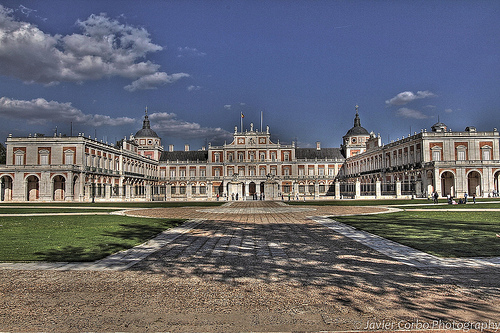Spain - Renders Low Cost Treatment

Introduction
Spain is the largest country in Southern Europe, the second largest country in Western Europe and the European Union, and the fourth largest country in the European continent. Its capital and largest city is Madrid. Native Spaniards make up 88% of the total population of Spain with a large numbers of immigrants who make up 12% of the population. Spanish (español)—officially recognised in the constitution as Castilian (castellano)—is the official language of the entire country, and it is the right and duty of every Spaniard to know the language. The other co-official languages of Spain are Basque (euskara); Catalan (català); Valencian (valencià); and Galician (galego).
Mobile penetration is high and growing steadily, while broadband uptake is backed by continuing investment in infrastructure among operators in a bid to provide improved bundled services and so compete more effectively against other players.
Spaniards Dental Industry
Dentists in Spain are mostly private, and publicly funded dental care is only available in emergencies. This means that there are a lot of private practices all competing with one another and consequently most are trying to outdo their rivals by offering the best possible treatment. This does however mean that these practices are not formally regulated by the government, so it is imperative that you make sure that any dentist you are considering is properly regulated and qualified. Every practicing dentist in Spain should be registered with the Spanish Dental Association (officially the Consejo General de Colegios de Odontólogos y Estomatólogos). This is located in Madrid and is updated daily, though any registering dentist must also register in their local area. In order to be on this register the dentist must have obtained a degree from a Spanish university officially recognized by the association, or must have a diploma awarded in an officially recognized European Union country. This degree or diploma must count as a primary dentist qualification. There are a number of these but you must find out which the dentist has, and then research to ensure that it is a genuine qualification. A medical health provider can usually do this for you, although equally you can contact the Spanish Dental Association.
Getting There
The majority of international visitors arrive at Adolfo Suárez Madrid–Barajas Airport (MAD) or Barcelona–El Prat Airport (BCN), both of which are less than 15 miles from the city center. Spain has dozens of international and local airports, though the best options for connections are from Madrid or Barcelona. Both are well served by national and discount airlines, including Iberia and Air Europa, and offer daily flights to almost every corner of the country and also to the Canary and Balearic Islands.
Taking the train to Spain is a greener option and has much to recommend it – there’s a lot to be said for waking up refreshed in Madrid or Barcelona after the quick Eurostar service to Paris and the comfortable overnight journey on the “train-hotel”. Driving is more of an adventure, but there are several routes that can save you time, like the direct ferry services from Portsmouth and Plymouth to Santander and Bilbao.
Visitor Highlights
Land of the siesta, daily life in Spain moves slowly and runs until late. Many travelers can get frustrated at the limited store hours and seemingly laid back pace of life. But it’s this Spanish perspective – move slowly, enjoy yourself, eat well, and relax – which gives the country so much character. Spain is a beautiful, interesting, and dynamic country. Madrid and Barcelona are hip and energetic cities. Visit Granada for a Moorish touch. Visit the beautiful Basque Country in the north and get off the beaten track. Valencia is a great port town that heaves with crowds during the August tomato throwing festival in Bunol. Take a quick jaunt to the Canary Islands or Ibiza. The list goes on. Spain is a lovely and diverse country and, unlike other Western European countries, will be a lot kinder to your budget. For more information on tourism, visit the Institute of Tourism of Spain website.

